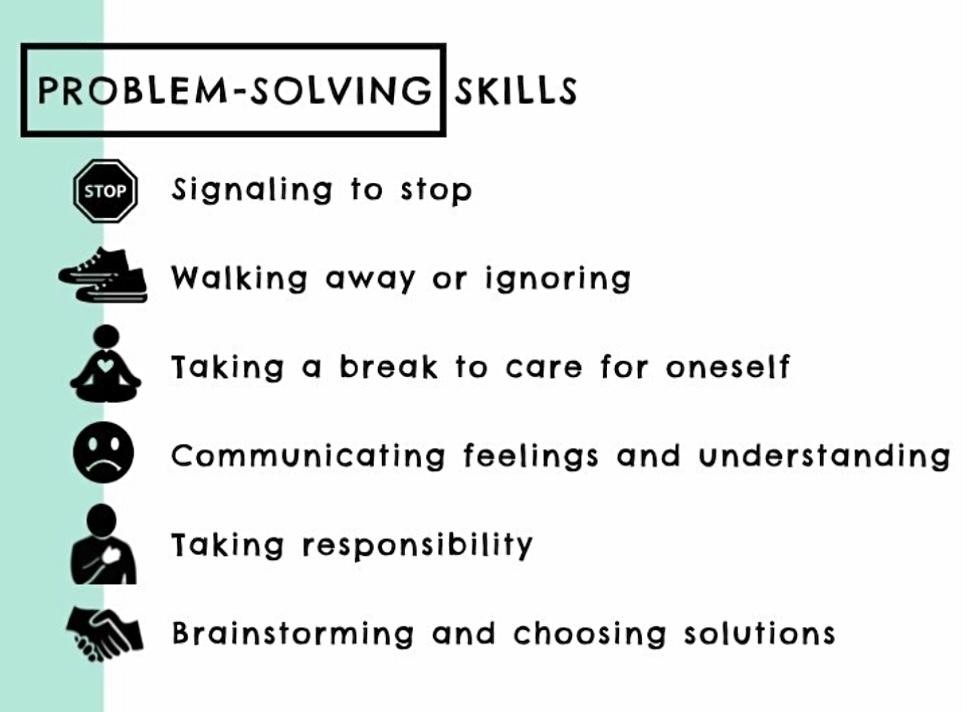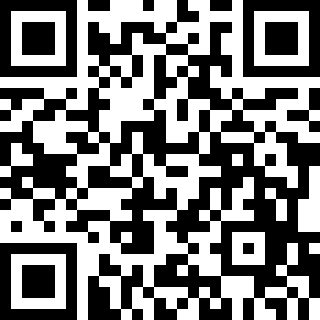
Empower Students to Solve Their Problems
By Claire Brantley Curcio | September 2023

Among the top skills employers seek are teamwork, communication, adaptability and problem solving. Essentially, can you get along and work well with others, especially in unpreferred circumstances? This can be challenging for students who resort to behaviors like disrespect and aggression to resolve conflict. School counselors can support students in developing a healthier mindset and the skills necessary to express and fulfill their needs in prosocial ways, ultimately preparing them for the world of work and beyond.
A Healthier Mindset
Problem behavior often stems from flawed attitudes and beliefs. We want students to believe in their ability to achieve high quality outcomes for themselves (ASCA Student Standard M-5). Without a healthy belief in themselves, students are likely to employ inappropriate methods of pursuing superiority, often hurting others or themselves in the process.
A key determinant of belief in oneself is having an accurate understanding and focus on what is within the circle of control. The circle of control encompasses aspects of a situation we have personal power to change. Things beyond our control are outside the circle. For example, we can’t control what others think about us, but we can control how we think about ourselves. When students focus on what they can truly control, discouragement is exchanged for empowerment, creating fertile ground for problem-solving skills.
The Skills Necessary
Review of school counseling resources reveals six widely taught problem-solving skills (pictured below). These aren’t just useful in conflict with others. This list includes advocacy skills (B-SS 8) students have control over, and coping skills (B-SMS 7) for navigating things outside their control, making it useful for practically any issue they might face. Combined with a healthy belief in oneself, these skills shape a simple framework for social/emotional competence and can inform many counseling interventions.

Tier 1 Intervention
Determined to reduce office referrals, one Texas school counselor implemented a combination of in-person and virtual counseling lessons at the beginning of the year to teach these problem-solving skills in detail. She knew she couldn’t just tell students to apologize or breathe; they needed clear instruction on how. She also trained and collaborated with faculty and staff to reinforce these skills, establishing them as universal expectations. As a result, her school saw an 81 percent decrease in office referrals!
Additional Tier 1 strategies:
School counselors in Virginia conducted a leadership small group for students who represented a majority of the prior year’s infractions for aggression. Following thorough review, the students were invited to teach the listed skills to their peers through role-plays they wrote. This positive approach gave them remedial practice and, more important, bolstered their confidence and buy-in, increasing the likelihood they’d utilize this knowledge when the opportunity arose. As a result, the group boasted a 73 percent decrease in aggression referrals.
Additional Tier 2 strategy:
Having copies of the circle of control and problem-solving skills available for students to mark up can transform individual counseling. Students can reflect on a situation that didn’t go well by mapping what was within and outside their control; then consider which problem-solving skills they could have tried. This same process can be used for future decision making, too.
Additional Tier 3 strategy:
Less is more! Rather than introducing these concepts through multiple new initiatives, find where empowerment language and the problem-solving skills align with existing systems in your building and aim to strengthen those. Remember, the first step in changing behavior is to address the belief behind it. Consider how you can first foster students’ belief in themselves, which will empower them to use problem-solving skills. These skills require time to teach and even more time to practice. Where can you build this time into your program, as well as other educators’ work with students?
Resources
Access materials for the strategies described in this article here or scan the QR code below – including lessons for elementary and secondary, posters, single skill images for your creative use, a small group summary, and even an original song!

Claire Brantley is a school counselor; contact her at mrscurciocounselor@gmail.com.
A Healthier Mindset
Problem behavior often stems from flawed attitudes and beliefs. We want students to believe in their ability to achieve high quality outcomes for themselves (ASCA Student Standard M-5). Without a healthy belief in themselves, students are likely to employ inappropriate methods of pursuing superiority, often hurting others or themselves in the process.
A key determinant of belief in oneself is having an accurate understanding and focus on what is within the circle of control. The circle of control encompasses aspects of a situation we have personal power to change. Things beyond our control are outside the circle. For example, we can’t control what others think about us, but we can control how we think about ourselves. When students focus on what they can truly control, discouragement is exchanged for empowerment, creating fertile ground for problem-solving skills.
The Skills Necessary
Review of school counseling resources reveals six widely taught problem-solving skills (pictured below). These aren’t just useful in conflict with others. This list includes advocacy skills (B-SS 8) students have control over, and coping skills (B-SMS 7) for navigating things outside their control, making it useful for practically any issue they might face. Combined with a healthy belief in oneself, these skills shape a simple framework for social/emotional competence and can inform many counseling interventions.

Tier 1 Intervention
Determined to reduce office referrals, one Texas school counselor implemented a combination of in-person and virtual counseling lessons at the beginning of the year to teach these problem-solving skills in detail. She knew she couldn’t just tell students to apologize or breathe; they needed clear instruction on how. She also trained and collaborated with faculty and staff to reinforce these skills, establishing them as universal expectations. As a result, her school saw an 81 percent decrease in office referrals!
Additional Tier 1 strategies:
- Adopt an empowerment motto or theme for the year (e.g., “We are Powerful!”), ensuring staff understand its meaning and communicate it to students consistently.
- Start the year with an empowerment assembly or pep rally, teaching the circle of control. Introducing foundational concepts in a larger setting saves you time in classrooms to use later for extension.
- Connect all subsequent lessons back to this mindset and skillset.
- For more practice, offer students extra credit to complete after your lessons.
- Don’t do this alone. Provide teachers with videos or PowerPoints. One counselor collaborated with her librarian, computer teacher and art teacher to reinforce this in class projects.
- Review circle of control and skills on the morning announcements. One counselor aired a weekly game-show-style question, challenging classes to apply their learning from that week’s announcements in a case scenario. Participating classes were recognized through PBIS.
- Find where you can marry empowerment and problem-solving with existing PBIS/MTSS structure, such as your school’s behavior matrix or morning meetings. One school revised their leadership award criteria. Examples of how winners demonstrated exemplary mindset or problem-solving can be included on certificates.
- Hang posters in classrooms, the cafeteria, hallways and outside.
School counselors in Virginia conducted a leadership small group for students who represented a majority of the prior year’s infractions for aggression. Following thorough review, the students were invited to teach the listed skills to their peers through role-plays they wrote. This positive approach gave them remedial practice and, more important, bolstered their confidence and buy-in, increasing the likelihood they’d utilize this knowledge when the opportunity arose. As a result, the group boasted a 73 percent decrease in aggression referrals.
Additional Tier 2 strategy:
- Facilitate an “Undercover Kindness” group where Tier 2 problem-solvers brainstorm and perform anonymous acts of kindness at school, strengthening belief in their ability and intrinsic motivation to positively impact others.
Having copies of the circle of control and problem-solving skills available for students to mark up can transform individual counseling. Students can reflect on a situation that didn’t go well by mapping what was within and outside their control; then consider which problem-solving skills they could have tried. This same process can be used for future decision making, too.
Additional Tier 3 strategy:
- One counselor provides parents with laminated half sheets of these resources for use with their child at home. Consistency across environments improves outcomes.
Less is more! Rather than introducing these concepts through multiple new initiatives, find where empowerment language and the problem-solving skills align with existing systems in your building and aim to strengthen those. Remember, the first step in changing behavior is to address the belief behind it. Consider how you can first foster students’ belief in themselves, which will empower them to use problem-solving skills. These skills require time to teach and even more time to practice. Where can you build this time into your program, as well as other educators’ work with students?
Resources
Access materials for the strategies described in this article here or scan the QR code below – including lessons for elementary and secondary, posters, single skill images for your creative use, a small group summary, and even an original song!

Claire Brantley is a school counselor; contact her at mrscurciocounselor@gmail.com.